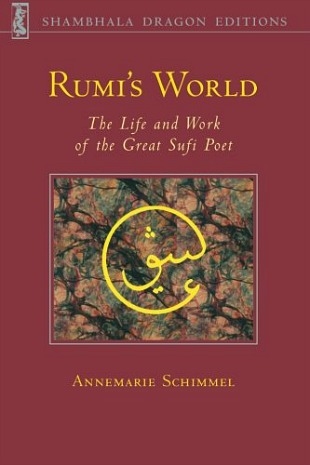This juicy interpretation of the wildly inventive poetry of Rumi, the thirteenth-century mystic seer, was originally published in 1992 as I Am Wind, You Are Fire. Annemarie Schimmel, an international authority on Islamic religion and literature, seems to have let his poetry simmer in her soul for years. Like the celebrated chickpeas in Rumi's verse that are cooked to perfection, the result is a delicious work of maturity brimming with insights into this spiritual master's astonishing imagery.
Early on, the author quotes Rumi: "I have prayed so much that I myself turned into prayer — / Everyone who sees me begs a prayer from me." Schimmel adds, "This couplet may represent the truest self-portrait of the great mystic." Rumi's devotional ardor pulsates through his poetry. Surrender to God is necessary for human beings but everything praises Him in "its own mute elegance," notes the author.
Schimmel is deeply moved by Rumi's ability to discern, interpret, and translate "the silent language of creation." He sees "flowers in spring engaged in prayer; the lily stands upright and calls out 'Allahu akbar'; the violet bows over its green prayer rug, and the trees lift their hands as though they were imploring God's help. They sing His praise without tongues when He grants them green robes in spring, and they ask for His support when their branches bend under their heavy load of fruit in the fall."
With the diligence of someone who has spent a lot of time savoring Rumi's poetry, Schimmel shows how it makes use of the Koran, pays tribute to the prophets and the saints, offers commentary on the spiritual ladder, honors the bounties of love, and revels in the sound of music, and celebrates the whirling dance. In one of the finest chapters, the author explores the significance of the heart for Rumi and the varied imagery he uses to describe it — a cradle, a house, a mirror, a garden, or a mosque. Read Rumi's World to gain a deeper appreciation of the breadth and depth of his visionary poetry and imagery.
